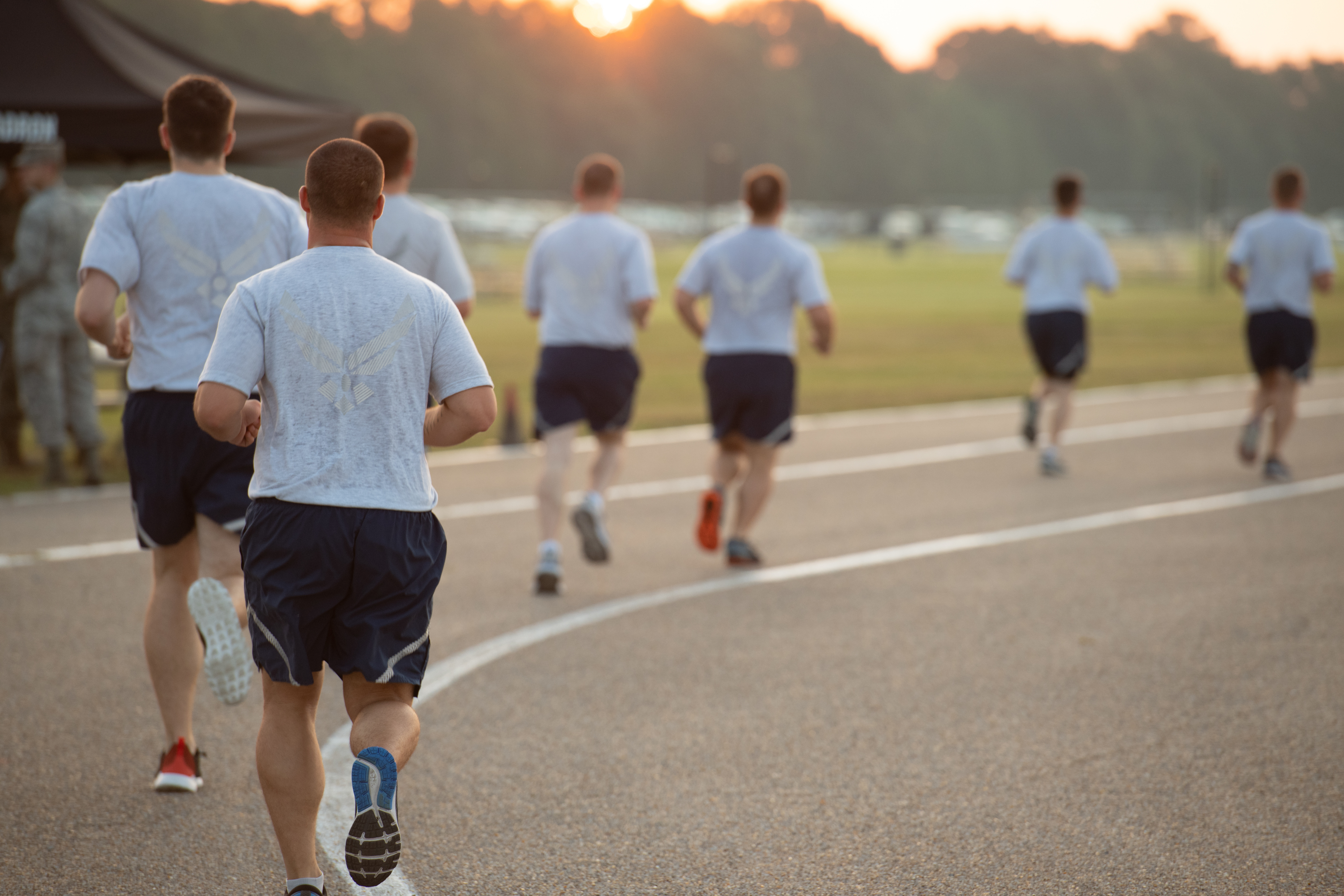The Air Force is delaying physical fitness testing for the fourth time due to the coronavirus pandemic. Tests will resume July 1, according to a March 4 release.
The Department of Air Force announced in December it would postpone physical training tests until April due to COVID-19, and do away with scores on the controversial waist measurement portion of the test.
“This is the right decision for our Airmen to ensure we are getting after controlling the spread of COVID and ensuring we take the right steps to build a fitness lifestyle in our Air Force, rather than Airmen who can just [pass] a fitness test,” Chief Master Sergeant of the Air Force JoAnne S. Bass wrote on Facebook.
When tests resume, Airmen will be graded using a new scoring system based on a 1.5-mile run and one minute of pushups and situps. The service will release additional details on the scoring system, and how heavily each part will factor into the final grade, in June.
One change still under consideration is scoring Airmen as part of five-year age groups, instead of the current 10-year cohorts, according to the release.
No-fail diagnostic PT tests will also be available when assessments resume, giving Airmen and Guardians more flexibility. If an Airman or Guardian passes a test taken with their Fitness Assessment Cell or physical training leader, they can make that score official. If they fail, they can test again, and the mock test will not count against them.
Commanders can opt to delay testing beyond July 1 based on local public health recommendations, their state’s COVID-19 restrictions, and whether on-base fitness centers are opened or closed, according to the release.
During a Facebook “Coffee Talk” with USAF Surgeon General Lt. Gen. Dorothy A. Hogg, Bass signaled the Air Force is considering another option besides the 1.5-mile run to assess Airmen’s cardiovascular fitness. Senior Air Force leaders have asked for alternative options, she said.
“There are different ways to assess fitness, and we should be looking at those things, and we are,” she said.
The Air Force Fitness Working Group, for example, is exploring cardio alternatives like a 20-meter shuttle run, row ergometry, planks, and burpees, according to the release.
Physical fitness tests will likely look much different by 2030, but Bass said the Air Force will take an “incremental” approach to change.
“We are also conducting a holistic review of policies associated with the physical fitness assessment program to determine if they are still a good fit for today’s Air Force,” Lt. Gen. Brian T. Kelly, deputy chief of staff for manpower, personnel, and services, said in the release. “This includes a review of who’s accountable for conducting our testing and how it gets administered.”
Although Airmen and Guardians will no longer be scored on waist measurements, the tape test will “still be administered to determine compliance with body composition standards, as required by Department of Defense Instruction 1308.3,” according to the release.
USAF, however, is still trying to figure out how and where the waist measurement fits in this new holistic approach to fitness. It might soon find a home on the periodic health assessment (PHA), Hogg said.
Airmen are currently asked to fill out an online survey each year, and then discuss their answers on the phone with a health care provider. There’s no “value added” by that approach, Hogg said.
She said it’s possible the department could bring back face-to-face periodic health assessments in the next few years, which could open the door to adding waist measurements to the annual assessment.
“We do know that, through research and studies, that the waist measurement … can give us information about your health, but where does that belong?” Hogg asked. “Do we do it at the PHA? If we do, well, most of our PHAs are not face-to-face, so how are we going to do that? There’s definitely conversations happening right now about PHAs and waist management and what’s right.”
